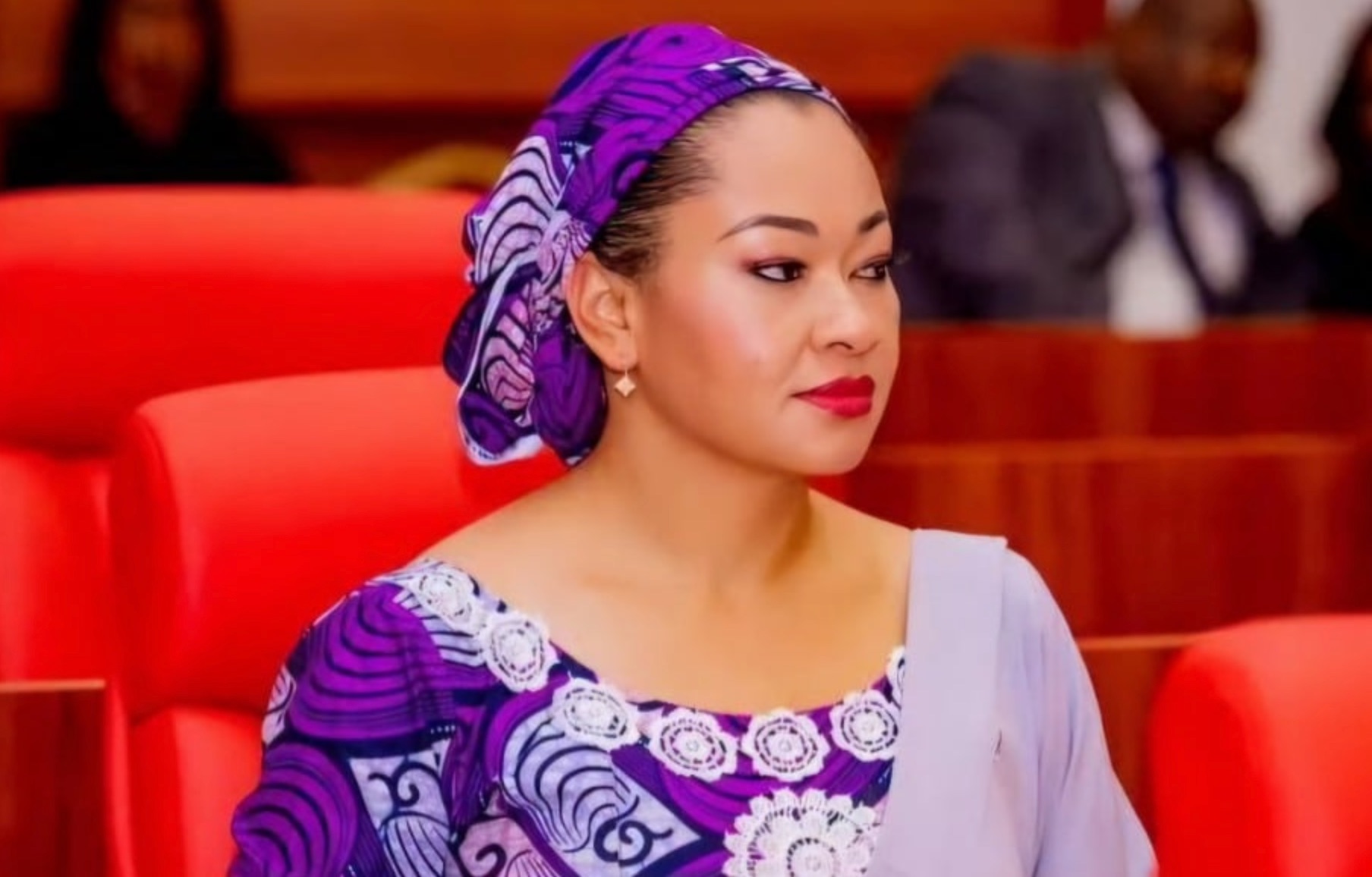INEC Holds Crucial Meeting on Possible Recall of Senator Natasha Akpoti-Uduaghan
The political scene in Nigeria continues to be an arena of high drama, with the most recent spectacle surrounding suspended Senator Natasha Akpoti-Uduaghan from Kogi Central. Her suspension, which stems from allegations of sexual harassment against Senate President Godswill Akpabio, has brought her political career into a tumultuous phase. As pressure mounts from her constituents, there are growing calls for her removal from the Nigerian Senate. This has led to the convening of a crucial meeting by the Independent National Electoral Commission (INEC) on March 24, 2025, to deliberate on the process of recalling Akpoti-Uduaghan from office.
While the senator remains defiant in her stance, dismissing claims that she apologized or retracted her position, the tension between her, the Senate leadership, and her constituency is undeniably escalating. In this article, we explore the events leading up to the potential recall of Natasha Akpoti-Uduaghan, examining her suspension, the calls for her removal, and the broader political ramifications of her situation.
Senator Natasha Akpoti-Uduaghan has been suspended from the Senate for over six months now, following a series of allegations that have stirred the political waters. The crux of the matter lies in accusations that Akpoti-Uduaghan was sexually harassed by Senate President Godswill Akpabio. Akpoti-Uduaghan claims that the Senate leadership attempted to suppress her allegations and, as a result, she was suspended.
The senator made public statements accusing Akpabio of harassing her, describing it as an abuse of power. While these allegations were serious, the lack of solid evidence to back up her claims led many to question her motivations and the veracity of her accusations. Critics within and outside the Senate saw her actions as politically charged, potentially designed to weaken the influence of one of Nigeria’s most powerful politicians.
Despite the absence of concrete evidence to substantiate her claims, Akpoti-Uduaghan has remained adamant, refusing to apologize for the allegations she made. This defiance has fueled much of the controversy, with supporters rallying behind her, arguing that powerful men in Nigerian politics often escape accountability, while detractors accuse her of misusing her position to deflect attention from her own political shortcomings.
Amidst this political turmoil, Akpoti-Uduaghan’s constituents from Kogi Central have made their displeasure with the senator known. A petition was filed at the headquarters of the Independent National Electoral Commission (INEC) in Abuja, demanding her recall from office. The petition, reportedly signed by over half of the registered voters in Kogi Central, alleges that Akpoti-Uduaghan has engaged in “gross misconduct, abuse of office, evasion of due process, and a pattern of deceitful behavior” that has harmed the integrity of both the Senate and the Nigerian democracy.
The petitioners argue that the senator’s actions, including her persistent allegations against Akpabio, constitute a dereliction of duty and an abuse of the trust that the people of Kogi Central placed in her when they elected her to office. They claim that her behavior has been detrimental to the Senate’s functioning and has generated unwarranted distractions that have overshadowed the important work that should be carried out by legislators.
“We hereby invoke our rights under the laws of the Federal Republic of Nigeria to formally demand the recall of Senator Natasha Akpoti-Uduaghan from the Nigerian Senate,” the petition reads. It represents a significant shift in public sentiment against the senator, who was once seen as a champion of women’s rights and social justice.
The filing of the petition marked the beginning of a process that could lead to Akpoti-Uduaghan’s removal from the Senate. The Independent National Electoral Commission (INEC), tasked with overseeing elections and ensuring the smooth conduct of democratic processes in Nigeria, has a key role to play in the recall procedure.
INEC’s role, according to the Nigerian constitution, is to determine whether the recall petition meets the required legal criteria and to oversee the logistics of the recall process, should it proceed. The commission held a crucial meeting on March 24, 2025, to review the petition and decide the next steps. This meeting is of immense importance, as it will determine whether the petition for Akpoti-Uduaghan’s recall is legally sound and if it will move forward to a referendum, where voters in Kogi Central will have the final say on whether she should remain in office.
The procedural requirements for a recall are clear under Nigerian law. A petition for recall can be initiated by the constituents of an elected official if a significant portion of the electorate—at least one-third of the registered voters in the senator’s constituency—signs the petition. In Akpoti-Uduaghan’s case, the petition has already met the threshold, with more than half of the registered voters in Kogi Central reportedly supporting the recall.
While INEC’s role is mainly administrative, the political ramifications of this decision are enormous. If the commission allows the recall to proceed, it will set a precedent for how politicians who fall out of favor with their constituencies can be removed from office. Moreover, the process could potentially weaken the political power of Akpoti-Uduaghan and her allies, while strengthening the position of her opponents in the Senate and the political landscape of Kogi State.
Before INEC could begin any formal action on the recall petition, a legal hurdle had to be cleared. In the days leading up to the commission’s meeting, a court case had been filed that sought to prevent INEC from acting on the recall petition. The court injunction, which was intended to block the petition from moving forward, was overturned by the Federal High Court in Lokoja, which ruled that the recall process was constitutionally valid. This ruling provided the green light for INEC to proceed with the next steps.
The court’s decision was a significant victory for those pushing for Akpoti-Uduaghan’s recall, as it affirmed the constitutional right of constituents to hold their elected representatives accountable. However, it also signaled a potential political showdown, with Akpoti-Uduaghan’s camp vowing to challenge the decision at every turn. This legal battle underscores the broader struggle between Akpoti-Uduaghan and the political establishment in Kogi State, as well as the battle for public opinion in Nigeria.
Throughout the growing calls for her recall, Senator Natasha Akpoti-Uduaghan has remained steadfast in her defense of her actions. She has publicly dismissed claims that she has apologized to the Senate or retracted her accusations against Akpabio. In a statement issued on March 24, 2025, Akpoti-Uduaghan described reports suggesting that she had apologized as “false and misleading.” She vehemently denied retracting her position, reaffirming that she stood by her words and actions.
“The purported reports circulating that I have apologized to the Senate and retracted my position are completely untrue. I stand firmly by my words and actions, and I have not issued any apology to the Senate or anyone regarding this matter,” she said. Akpoti-Uduaghan also lashed out at those spreading what she described as falsehoods, accusing them of trying to manipulate public opinion and distort the truth.
Her statement reflects her determination to not be intimidated by the growing pressure from her constituents and political adversaries. She framed the calls for her recall as part of a broader attempt to silence her and prevent her from speaking out against powerful figures in the Senate. “The desperation to silence me is palpable, but I will not be intimidated,” she said.
Despite her defiance, the reality remains that the recall process is now in motion, and Akpoti-Uduaghan’s future as a senator is uncertain. Should the recall petition be approved by INEC and proceed to a referendum, the senator will face the difficult task of convincing her constituents to stand by her. The outcome of this process will not only determine her political fate but could also have wider implications for the future of Nigerian politics, especially concerning the accountability of elected officials.
The potential recall of Senator Akpoti-Uduaghan has far-reaching political consequences. If the recall is successful, it will serve as a warning to other politicians who believe they can act without regard for the will of their constituents. It will demonstrate that even powerful political figures can be held accountable by the people who elected them. On the other hand, if the recall fails, it will be seen as a victory for Akpoti-Uduaghan and those who support her, reinforcing the idea that elected officials can act without fear of repercussions from the electorate.
The recall process also reflects the growing dissatisfaction among Nigerians with the political class, especially with allegations of corruption and abuse of power. The case of Akpoti-Uduaghan highlights how public officials who fail to live up to the expectations of their constituents can face real consequences. It also raises important questions about the power dynamics within the Senate and how politicians navigate the delicate balance between personal interests and public duty.
Moreover, the recall petition has the potential to further divide Nigerian politics, especially within Kogi State. The outcome of the recall process could reshape the political landscape in the region, influencing the outcome of future elections and political alignments. As the process unfolds, all eyes will be on INEC and the actions it takes to ensure that the process is carried out fairly and in accordance with the law.
The political drama surrounding Senator Natasha Akpoti-Uduaghan continues to evolve, with the latest chapter focusing on the potential recall from the Senate. The calls from her constituents, the legal battles, and Akpoti-Uduaghan’s defiant stance have created a volatile atmosphere that could have significant consequences for the senator’s political future. As INEC prepares to decide the next steps in the recall process, one thing is certain: the outcome of this case will not only shape the career of Natasha Akpoti-Uduaghan but also serve as a pivotal moment in Nigeria’s political history. The nation watches closely as this saga unfolds, awaiting a resolution that could set a precedent for the accountability of elected officials in Nigeria.
Source: The Trent





